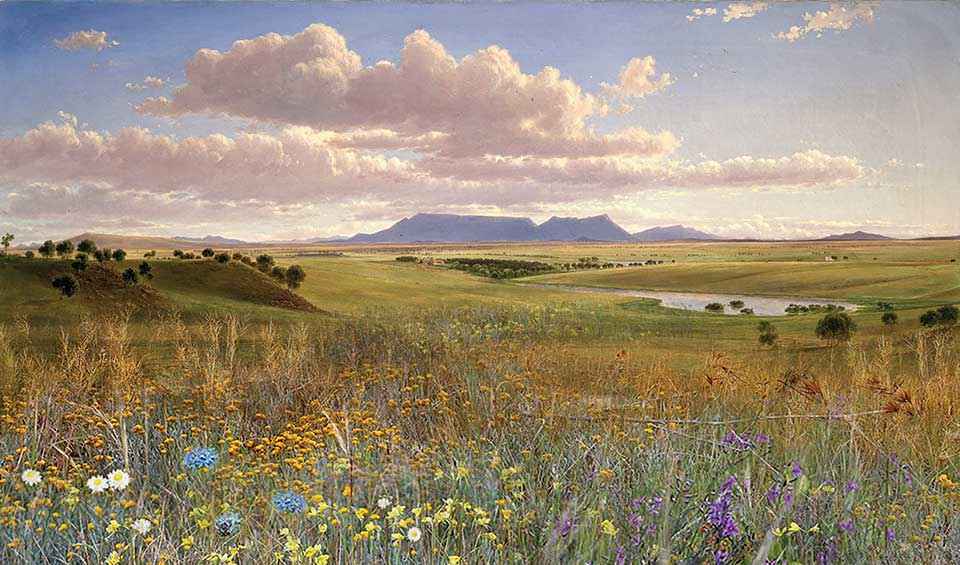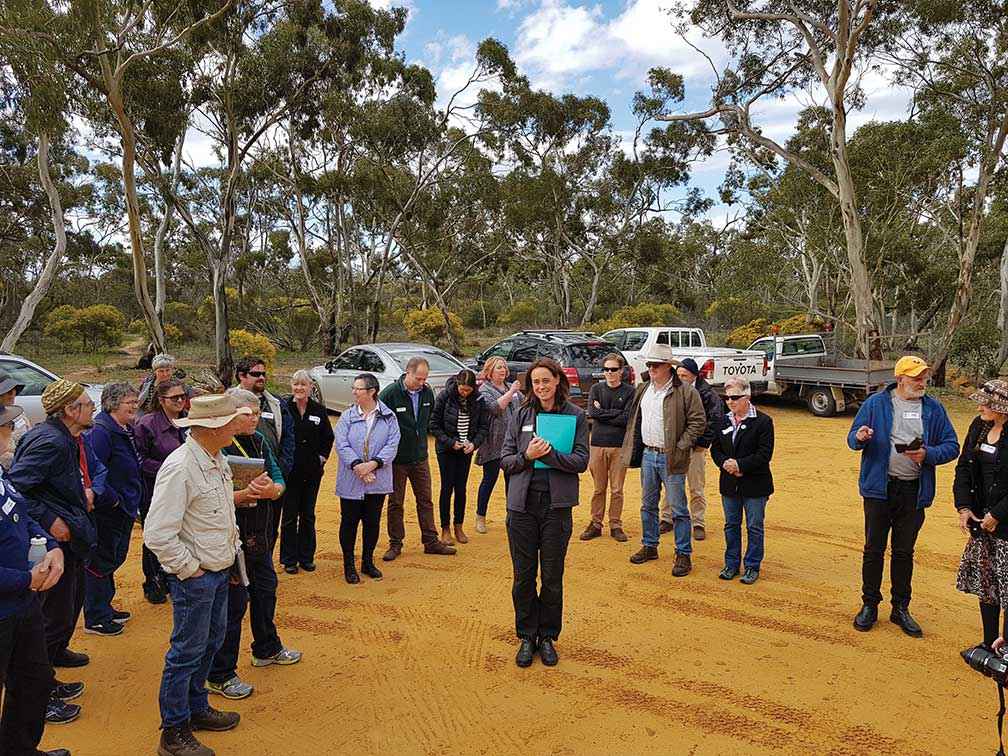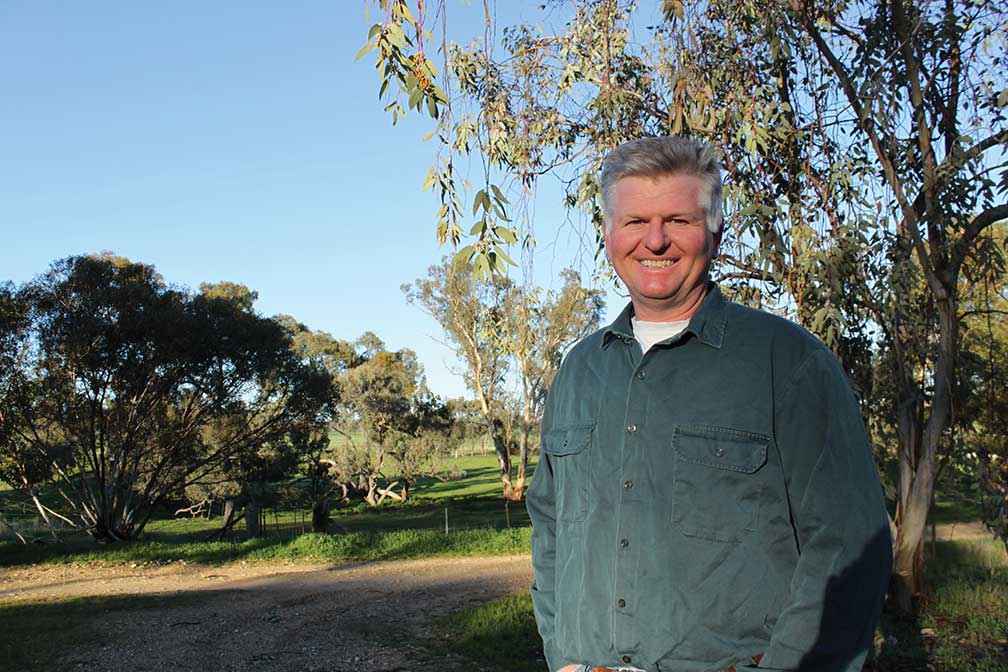Victorian Landcare Magazine - Summer 2022 , Issue 83

The annual Wimmera Biodiversity Seminar is a locally run event bringing biodiversity research, projects, and news to local environmental enthusiasts each spring. Set in the sunny Wimmera, the seminar has been running for 24 years and despite a recent move online, it is still reaching a vast audience of professionals, volunteers, students, researchers, and Landcare groups.
The seminar series began in 1998 with the theme of wind harps of the Wimmera, focusing on the iconic buloke trees that grace the Wimmera plains. Since then, it has covered a range of themes including treasures of the goldfields, fungi, mosses and lichen, habitat restoration, biolinks, the impact of bushfires on insects, and climate change.

Above: Zoe Wilkinson, former Area Chief Ranger for Parks Victoria, speaking at the Keith Hateley Nature Walk, Little Desert National Park, during the 2018 Wimmera Biodiversity Seminar tour.
The seminar moves around the region each year, taking the 100 or so attendees to smaller towns and supporting local businesses. Past hosts have included Rupanyup, Nhill, Great Western, Dimboola and Horsham. The 2021 seminar was organised and supported by a committee of representatives from Barengi Gadgin Land Council, DELWP, Grampians Wimmera Mallee Water, Trust for Nature and Wimmera CMA.
Financial support comes from Bank Australia and DELWP. The committee would also like to acknowledge the Traditional Owners of the land on which the seminar is held and extend our respect to the Wotjobaluk, Jaadwa, Jadawadjalia, Wergaia and Jupagulk peoples. We pay our respects to their Elders, past, present and emerging and recognise their proud traditions, vibrant culture, and continued connection to land, water and the community.
The organising committee chose biodiversity on farm as the theme for 2021. Agriculture is a major land use in the region, dominated by broadacre cropping and grazing. There are large areas of remnant vegetation on private land.
Farmers are critically important to the preservation and restoration of biodiversity in the region. The 2021 seminar presentations explored how biodiversity can fit into agricultural landscapes.
The presenters included farmers, researchers, and natural resource managers all showing how they have incorporated biodiversity on farms.
Colin Seis is a well-known regenerative agriculture farmer from near Gulgong, NSW, who made the transition from traditional agriculture after a fire devastated his family farm. Colin was motivated to try and find a way to lower his input costs.
Colin shared his 40-year journey to the current day where he uses minimal herbicide and no pesticide or fungicide and instead lets nature take care of the pests. He has shown that by bringing the soil microbiology and insect diversity back to his farm, he can run a profitable business with minimal inputs.
Steven Hobbs, a farmer from Kaniva, shared his story of making the transition from traditional agriculture to a more sustainable model after analysing climate data from his property. Steven realised that cropping in the Wimmera was becoming very risky due to the shorter growing season, later autumn rains and more frequent frosts. Based on this, Steven moved to primarily farming livestock, selecting breeds that are more suitable to these conditions. He found perennial grasses are key to supporting livestock over summer through rotational grazing and greater ground cover that supports sheep and soil biology.

Above: Kaniva farmer Steven Hobbs was a speaker at the 2021 Wimmera Biodiversity Seminar.
In 2020 the organising committee made the difficult decision to hold the 2021 seminar online so it could continue during COVID-19 restrictions. While this has been challenging, it has also provided an opportunity to extend the reach of the seminar.
Attendees tuned in from all over Australia and around the world, including Peru, the UK, and the US.
The one-day in person event became a series of webinars held over the month of September with two speakers each week. These have been recorded and can be viewed on the SWIFFT website. Search for Wimmera Biodiversity Seminar at swifft.net.au
The seminar is held on the first Thursday of September to launch biodiversity month. Recent feedback from participants indicates support for keeping the seminar online. The committee is keen to return to an in-person seminar, as an important outcome of the seminar is connecting people. We hope to be able to do both. The in-person seminar will also include a site visit for attendees to experience the riches of Wimmera biodiversity.
Annie Hobby is a former Natural Environment Program Officer, Grampians Region, with DELWP.
For more information on the Wimmera Biodiversity Seminar email wimmerabiodiversityseminar@hotmail.com or search for Wimmera Biodiversity Series on Facebook and Instagram.